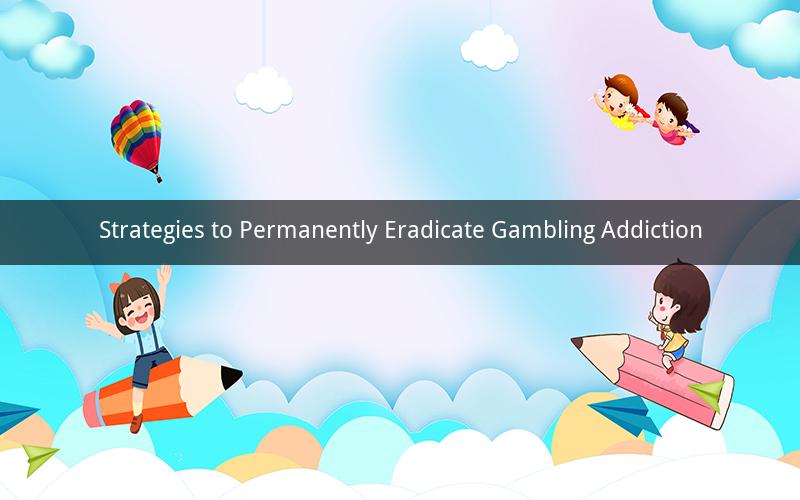
Gambling addiction is a severe issue that affects millions of people worldwide. Whether it's online or offline, the allure of winning big money can be overpowering. However, overcoming this addiction and living a life free from gambling is not only possible but essential for one's mental and financial well-being. In this article, we will discuss effective strategies to help you stop gambling for life.
1. Understand the Root Causes
Identifying the underlying reasons behind your gambling addiction is crucial. It could be due to stress, anxiety, depression, or even a genetic predisposition. Understanding the root causes can help you address the emotional and psychological factors contributing to your addiction.
2. Seek Professional Help
Seeking help from mental health professionals, such as therapists or counselors, can be beneficial. They can provide personalized guidance, therapy, and coping strategies to overcome your addiction. Additionally, support groups like Gamblers Anonymous can offer a sense of community and understanding from individuals who have faced similar challenges.
3. Develop a Strong Support System
Surround yourself with supportive individuals who understand your struggles and are committed to helping you overcome your addiction. This could include family members, friends, or fellow addicts in recovery. Having a strong support system can provide you with the encouragement and accountability needed to stay on track.
4. Create a Recovery Plan
Develop a comprehensive recovery plan that includes specific steps to avoid gambling triggers and maintain sobriety. This plan should include:
- Setting clear boundaries and limits on your finances and time spent on gambling-related activities.
- Removing access to gambling websites, apps, and physical locations.
- Engaging in alternative activities to replace the time you would have spent gambling.
- Establishing a routine to help maintain structure and reduce the urge to gamble.
5. Address Financial Issues
Gambling addiction often leads to significant financial problems. Addressing these issues is crucial to prevent relapse. Consider the following steps:
- Set a budget and stick to it.
- Prioritize paying off debts and seek financial counseling if necessary.
- Learn to manage your finances responsibly.
- Avoid situations that may trigger gambling thoughts or behaviors.
6. Develop Coping Mechanisms
Develop healthy coping mechanisms to deal with stress, anxiety, and other emotions that may lead you back to gambling. Some effective strategies include:
- Exercise regularly to improve your mood and overall well-being.
- Practice mindfulness and meditation to stay grounded and focused.
- Engage in hobbies or activities that bring you joy and a sense of accomplishment.
- Learn relaxation techniques, such as deep breathing or progressive muscle relaxation.
7. Monitor Your Progress
Regularly assess your progress and adjust your recovery plan as needed. Celebrate small victories and milestones along the way to maintain motivation. Remember that overcoming gambling addiction is a lifelong journey, and setbacks are a natural part of the process.
8. Stay Committed to Change
Staying committed to change is crucial for long-term recovery. This involves:
- Remaining vigilant about your triggers and taking proactive steps to avoid them.
- Continuing to seek support and guidance from professionals and support groups.
- Reflecting on your past experiences and learning from them.
- Maintaining a positive attitude and believing in your ability to overcome your addiction.
Questions and Answers:
1. What are some common triggers for gambling addiction?
Answer: Common triggers include financial stress, social situations, and emotional distress. Identifying these triggers is essential for developing strategies to avoid them.
2. How long does it typically take to overcome gambling addiction?
Answer: The duration of recovery varies for each individual, but it's important to understand that overcoming gambling addiction is a lifelong process.
3. Can therapy alone help with gambling addiction?
Answer: While therapy can be effective, combining it with other strategies, such as support groups and financial counseling, can provide a more comprehensive approach to recovery.
4. Is it possible to gamble responsibly if you have a gambling addiction?
Answer: It is highly unlikely for someone with a gambling addiction to gamble responsibly. Stopping gambling altogether is the best approach to ensure long-term recovery.
5. What are some alternative activities that can replace gambling in your free time?
Answer: Engaging in activities such as sports, exercise, hobbies, and spending time with loved ones can help fill the void left by gambling and provide a sense of fulfillment and well-being.